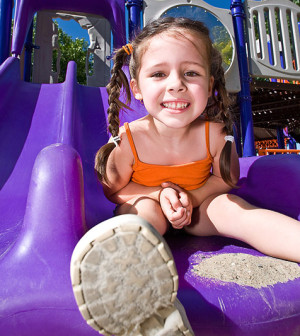- Could Your Grocery Store Meat Be Causing Recurring UTIs?
- Are You Making This Expensive Thermostat Error This Winter?
- Recognizing the Signs of Hypothyroidism
- 10 Strategies to Overcome Insomnia
- Could Artificial Sweeteners Be Aging the Brain Faster?
- Techniques for Soothing Your Nervous System
- Does the Water in Your House Smell Funny? Here’s Why
- Can a Daily Dose of Apple Cider Vinegar Actually Aid Weight Loss?
- 6 Health Beverages That Can Actually Spike Your Blood Sugar
- Treatment Options for Social Anxiety Disorder
Docs: Infants Should Share Parents’ Room to Help Prevent SIDS

Infants should sleep in the same room as their parents — but not in the same bed — to reduce the risk of sudden infant death syndrome (SIDS), new guidelines where to viagra online from the American Academy of Pediatrics advise.
The recommendations call for babies to share their parents’ bedroom for at least the first 6 months of life and, ideally, for the first year.
This could reduce the risk of sudden death by as much as 50 percent, the guideline authors say.
“Room sharing makes a lot of sense,” said Dr. Paul Jarris, deputy medical officer at the March of Dimes.
The rationale is that having the infant within view and reach makes for easier monitoring, comforting and feeding. Because the baby is nearby, parents might notice any potential difficulty, Jarris said.
“If we look at how strong the evidence is, parents will be well advised to adopt room sharing,” Jarris said.
It’s important, however, that infants have their own separate buy generic viagra online sleep surface, such as a crib or bassinet. They should never sleep on a soft surface like a couch or armchair, the doctors’ group warns.
Nor should babies sleep in the same bed as their mothers, the guidelines say. But, since infants do feed throughout the night, the doctors recommend that mothers feed the baby in bed.
“Babies should be viagra improves erectile function by brought to bed for feeding, but following feeding they should be returned to a separate sleep surface,” said report co-author Dr. Lori Feldman-Winter, a professor of pediatrics at Cooper Medical School in Camden, N.J.
“Breast-feeding can reduce SIDS by as much as 70 percent,” added Feldman-Winter.
Because moms may sometimes fall asleep during feeding, the AAP recommends keeping the parents’ bed my canadian pharmacy free of pillows, loose sheets, blankets and other soft bedding that could suffocate the baby, she said.
Each year in the United States, some 3,500 babies die from sleep-related deaths, including SIDS. The number of infant deaths dropped in the 1990s after a national safe-sleep campaign that emphasized placing infants on their back. However, momentum has stalled in recent years, Feldman-Winter said.
Besides room sharing and breast-feeding, the academy’s recommendations to create a safe sleep environment also include the following:
- Put the baby on his or her back on a firm surface, such as a crib or bassinet, with a tight-fitting sheet.
- Keep soft bedding, including crib bumpers, blankets, pillows and soft toys, out of the crib. The crib should be bare.
- Avoid exposing the baby to smoke, alcohol and illicit drugs.
- Never use home monitors or other generic viagra online devices, such as wedges or positioners, to reduce the risk of SIDS.
Although SIDS risk is greatest from 1 to 4 months of age, evidence shows that soft bedding is still a hazard for older babies.
One pediatric specialist thinks room sharing might be difficult for some parents to accept.
“Room sharing is probably the most controversial recommendation,” said Dr. David Mendez, a neonatologist at Nicklaus Children’s Hospital in Miami.
Parents have strong feelings one way or the other, Mendez said. “Some parents want the baby in the bed right next to them; some parents want the baby to have its own room,” he said.
Mendez said he’s more concerned with other risk factors for SIDS, such as smoking and excess bedding.
“I would rather have the parents put the baby in a separate room if they’re smokers than room share,” he said.
“Having the baby on a firm surface on his back and keeping soft pillows and loose bedding that the baby can get tangled up in out of the bed or crib — those things probably play a much bigger role in preventing SIDS than being in the same room with the baby,” Mendez added.
The new recommendations, published online Oct. 24 in the journal Pediatrics, were to be presented Monday at the academy’s annual meeting, in San Francisco.
More information
For more on SIDS, visit the U.S. Centers for Disease Control and Prevention.
Source: HealthDay
Copyright © 2026 HealthDay. All rights reserved.










